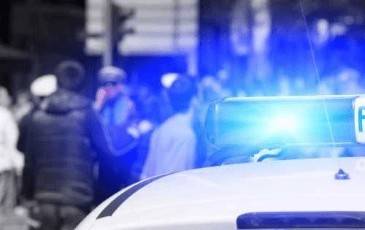DUI checkpoints are common on the weekends around Colorado Springs, as bars, clubs, and restaurants become packed with customers. Police officers may set up checkpoints on major roads to identify impaired drivers and arrest them before a collision can occur.
Even if you have already experienced passing through a DUI checkpoint, it is important to understand your rights and how to respond to officers just in case. You don’t want to be facing serious charges.
What Are the Rules of DUI Checkpoints?
 Normally, police officers must have probable cause to pull a driver over on suspicion of driving under the influence of drugs or alcohol. DUI checkpoints are an exception to this rule, however, as the Supreme Court case of Michigan Department of State Police v. Sitz determined that DUIs present a high risk to public safety and police officers can require drivers to stop at DUI checkpoints without probable cause. However, these stops must be fair and legal under Colorado’s checkpoint regulations.
Normally, police officers must have probable cause to pull a driver over on suspicion of driving under the influence of drugs or alcohol. DUI checkpoints are an exception to this rule, however, as the Supreme Court case of Michigan Department of State Police v. Sitz determined that DUIs present a high risk to public safety and police officers can require drivers to stop at DUI checkpoints without probable cause. However, these stops must be fair and legal under Colorado’s checkpoint regulations.
For a checkpoint to be legal, police officers must:
- Implement the checkpoint as part of an ongoing and comprehensive public safety strategy.
- Have the support of local prosecutors, district attorneys, and judges.
- Minimize the risk to public safety and avoid causing traffic hazards.
- Warn approaching drivers that they are entering a checkpoint with signs, flashing lights, and flares.
- Be visibly identifiable as police officers and wear uniforms to establish their authority.
- Have a supervising officer on site.
- Perform all field sobriety, breathalyzer, and chemical tests as established under the law.
What Should I Do at a Checkpoint?
DUI checkpoints operate in the same fashion as a standard traffic stop, but with one important exception: you are legally allowed to turn around or take a side street when approaching a checkpoint, but only if you do so in a safe and legal manner. Police officers cannot pursue you for turning around unless you have committed some other traffic offense.
As you approach a stop, you should obey all traffic laws, reduce your speed, and turn off your radio or music. Officers should slowly wave you forward and ask you to roll your window down. They will ask for your license and registration, which you must legally provide. If they suspect you have been drinking, then they can request a field sobriety or breathalyzer test. You do have the right to refuse, but it can lead to an automatic driver’s license suspension and be used against you in a criminal case.
Your best option is to comply with all requests and act as respectfully as possible. Officers may ask you where you are coming from and where you are going, but you do not have to provide this information. If you are arrested for a DUI, then you must be read your Miranda Rights, which include the right to an attorney (whom you should request) and the right to remain silent (which you should always exercise).
Experience DUI Defense in Colorado Springs
If you or someone you love was arrested at a DUI checkpoint in Colorado Springs, it is important to secure strong legal representation as soon as possible. Our team at The Bussey Law Firm, P.C., is made up of premier Colorado Springs criminal defense attorneys who have a thorough understanding of DUI procedures. Our founder, Timothy Bussey, is one of the only attorneys in Colorado with the ACS Forensic Lawyer-Scientist Designation. He is also certified to operate and maintain the Intoxilyzer 5000, is a certified NHTSA Field Sobriety Test Instructor, and is certified in Forensic Chromatography.
We can dig into the nature of your arrest, evaluate the charges against you, and fight to get your charges reduced or dismissed. To discuss your case in a free, confidential consultation, call us at (719) 475-2555.
